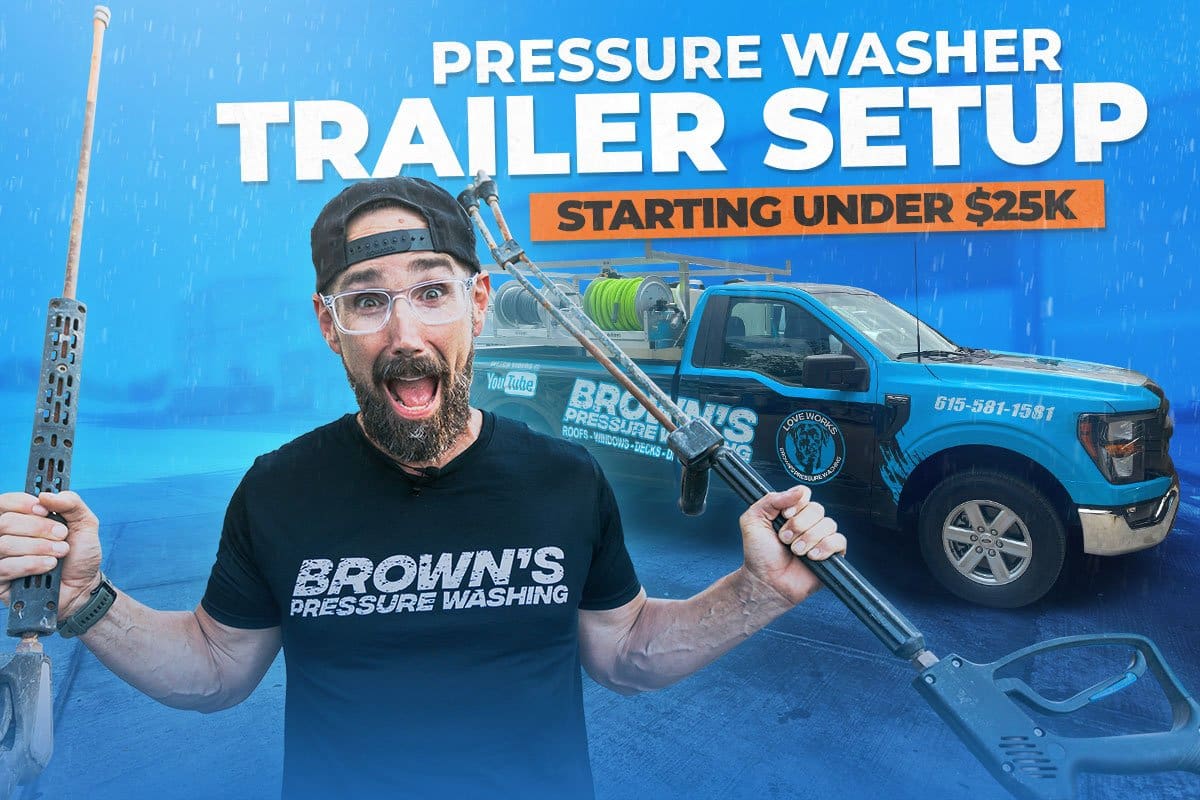When you start a pressure washing business, you need the best mobile pressure washer trailer setup you can afford.
Don’t worry if you don’t know what you need. We provide the ultimate guide to buying or building a commercial pressure washer setup. We talked to the team at Brown’s Pressure Washing business to find out what equipment they use for their pressure washer setup.
What is a pressure washer trailer?

Pressure washer trailers are single or dual-axle trailers that include:
- A self-contained gas, electric, or diesel-powered hot or cold water pressure washer
- Hose reels
- Water tanks
You can add chrome fittings and other accessories to improve your workflow and make your job easier. You might also add a recovery system to your mobile wash trailer. The reclamation allows you to recover dirty water from pressure washing and safely dispose of or reuse the water.
Pro Tip: This allows you to comply with most municipal and environmental regulations that govern wash-water runoff, which is an essential part of running a successful power washing business.
Pressure washer trailers must meet requirements outlined by the National Highway Traffic Safety Administration (NHTSA) and may be certified by the National Association of Trailer Manufacturers (NATM).
What are the benefits of pressure washer trailer systems?
Investing in a mobile pressure washing trailer for your pressure washing rig can offer several advantages and benefits. Here are some reasons why it might be a worthwhile investment:
- Increase mobility
- Organize better
- Protect equipment
- Project a professional image
- Improve workflows
- Scale easier
Let’s look at how a pressure washer trailer achieves each of these objectives.
Increase mobility
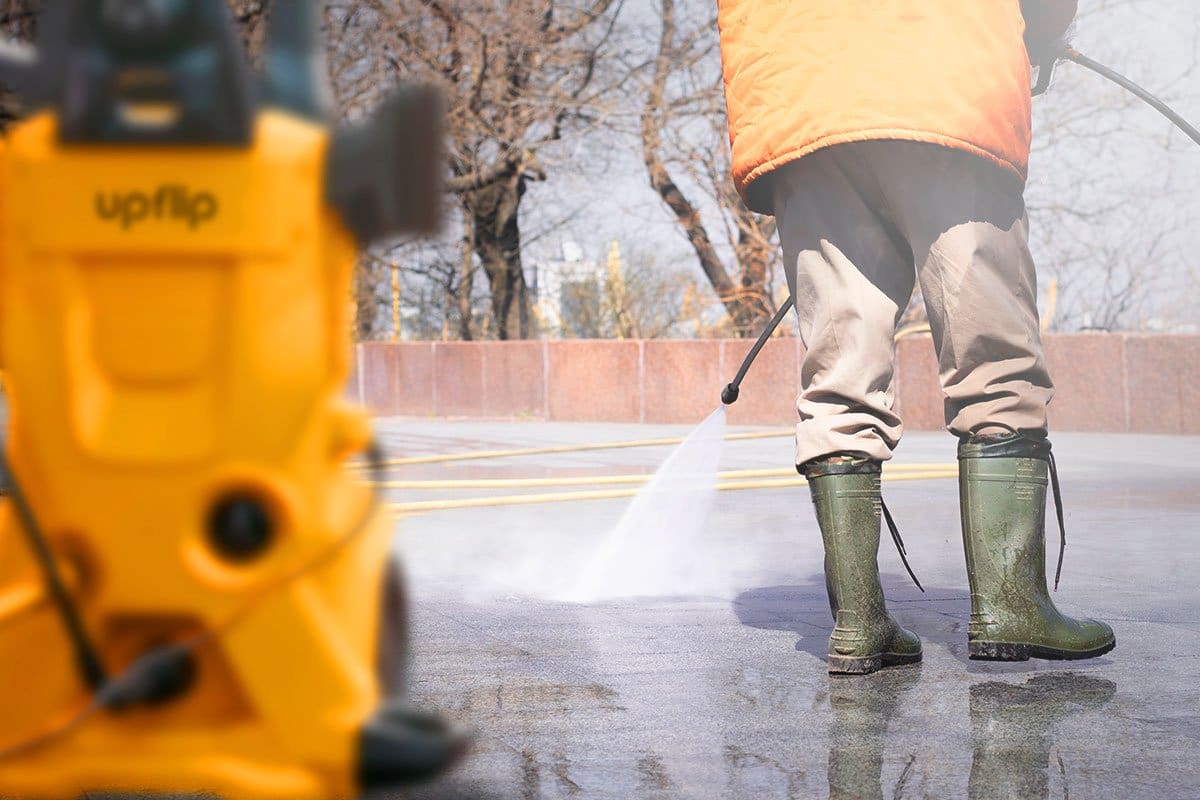
A pressure washing trailer setup provides the ability to transport your pressure washing equipment easily and efficiently. You can connect to a vehicle and take your pressure wash rig to multiple job sites or locations without disconnecting and reassembling the equipment each time.
You’ll save time, money, and effort, especially when you have multiple projects or sites daily.
Organize better
A pressure washer trailer provides dedicated space for your pressure washing equipment, accessories, and tools. You’ll benefit from having everything in one place so you’ll know exactly where to look for what you need.
You can customize the trailer with racks, shelves, and compartments to optimize storage and know your trailer-mounted equipment is secure during transportation.
Protect equipment
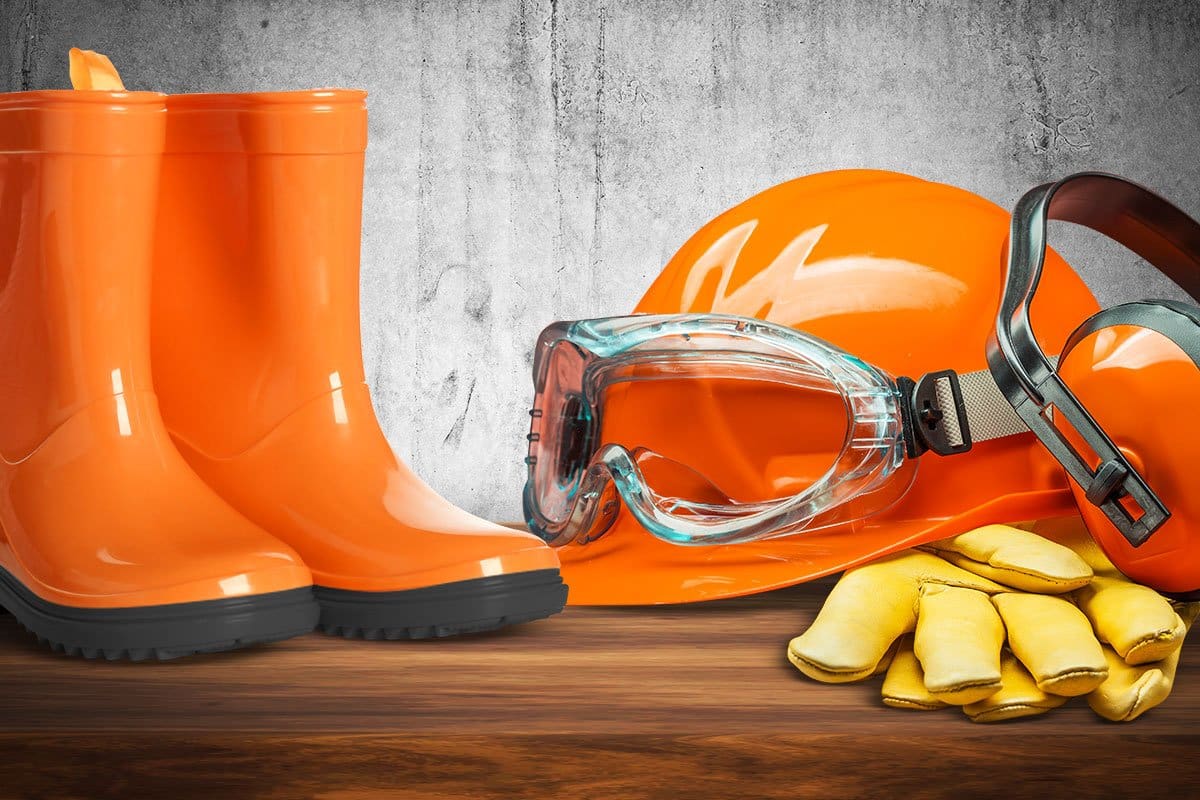
A commercial pressure washer trailer often provides secure weatherproof storage for your pressure washing equipment. Power washing trailers protect your investments from rain, snow, and UV exposure. You’ll reduce deterioration and damage, plus the power washing trailer locks deter theft of equipment.
Project a professional image
A dedicated trailer for your pressure washing rig enhances how your customers view you. It conveys a more professional and organized appearance. Clients may perceive you as more reliable and serious about your work, which can improve trust, customer satisfaction, and value perception compared to other pressure washers.
Improve workflows
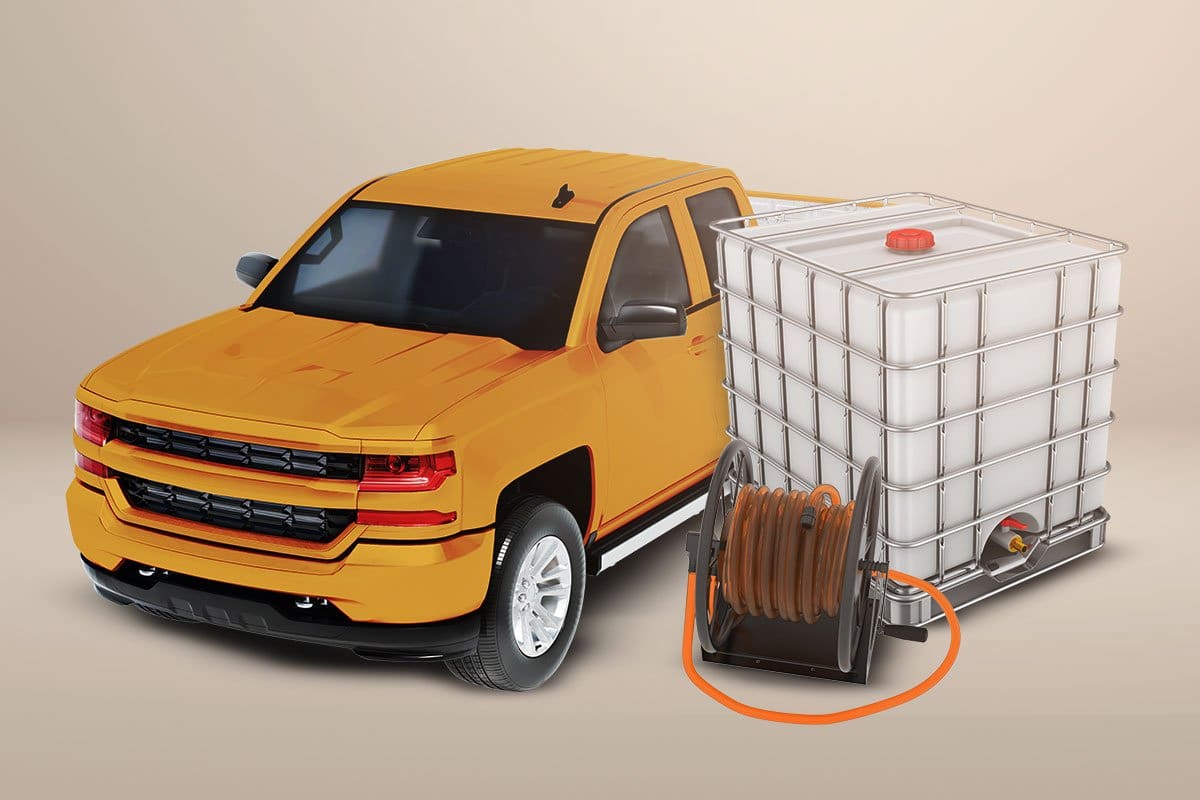
Optimize your business workflows and increase efficiency with a well-designed trailer. Customize your pressure washer trailer with features like water tanks, hose reels, and equipment mounting options to streamline your operations.
You’ll have easier access to water sources, more efficient hose management, and quicker setup and teardown. Each of these reduces downtime and improves productivity so you can take more jobs each day.
Scale easier
Investing in a pressure washer trailer provides flexibility for future growth and tool expansion. As your pressure washing business grows, you can easily add more equipment or upgrade your rig without worrying about storage limitations or constraints.
A power washing trailer offers the capacity and versatility to accommodate additional equipment or accessories as demand for your services increases.
It’s important to carefully assess your specific business needs, budget, and operational requirements before buying a trailer for your pressure washing rig.
Pro Tip: Measure the dimensions and weight of your machine, fuel tanks, and large water tank before choosing a pressure washer trailer.
You’ll also need to gather additional information about the capacity of the trailer, towing capacity of your vehicle, and any local regulations or permits that pertain to towing a powerwash trailer.
Next, let’s look at why Brown’s prefers a truck bed pressure washer setup.
Benefits of a pressure washer truck setup

Pressure washing trucks like the one pictured above can be a great alternative to pulling pressure washing trailers around behind your vehicles. A pressure wash truck setup serves all the same benefits as a washer trailer and has some additional advantages. You might prefer a pressure washing truck set up for these reasons:
- More compact: Trailers can add an additional 10 to 20 feet to a vehicle, which makes it difficult to travel in congested cities. A power washing truck requires less space.
- Less maintenance: You won’t have to replace wheels on a trailer if you get a skid for a truck, though you’ll still have to maintain your power washing trucks.
- Less storage space: A power washer truck will fit in a single parking space, while a power washer trailer will need its own space. That means you’ll need only half the parking.
A mobile pressure washing company will probably want to consider the pros and cons of each, but the team at Brown’s considers a truck pressure washer rig better than a power washer trailer.
Want to learn more about pressure washing?
Brown’s Pressure Washing share their tips and strategies about how they’ve reached their success in out article on starting a pressure washing business.
Launch Your $150K/Month Pressure Washing Business With Joshua’s Step-by-Step Training! |
|
| Want to start your own business but don’t know where to begin? Joshua Brown, who built a $150K/month pressure washing empire, shows you exactly how it’s done inside the UpFlip Academy. This step-by-step training covers everything you need to launch your business, from finding the right equipment to landing your first clients. | |
| Join the UpFlip Academy! | |
Next, let’s look at what to include in a pressure washer trailer system.
Best pressure washer trailer setup for under $25K
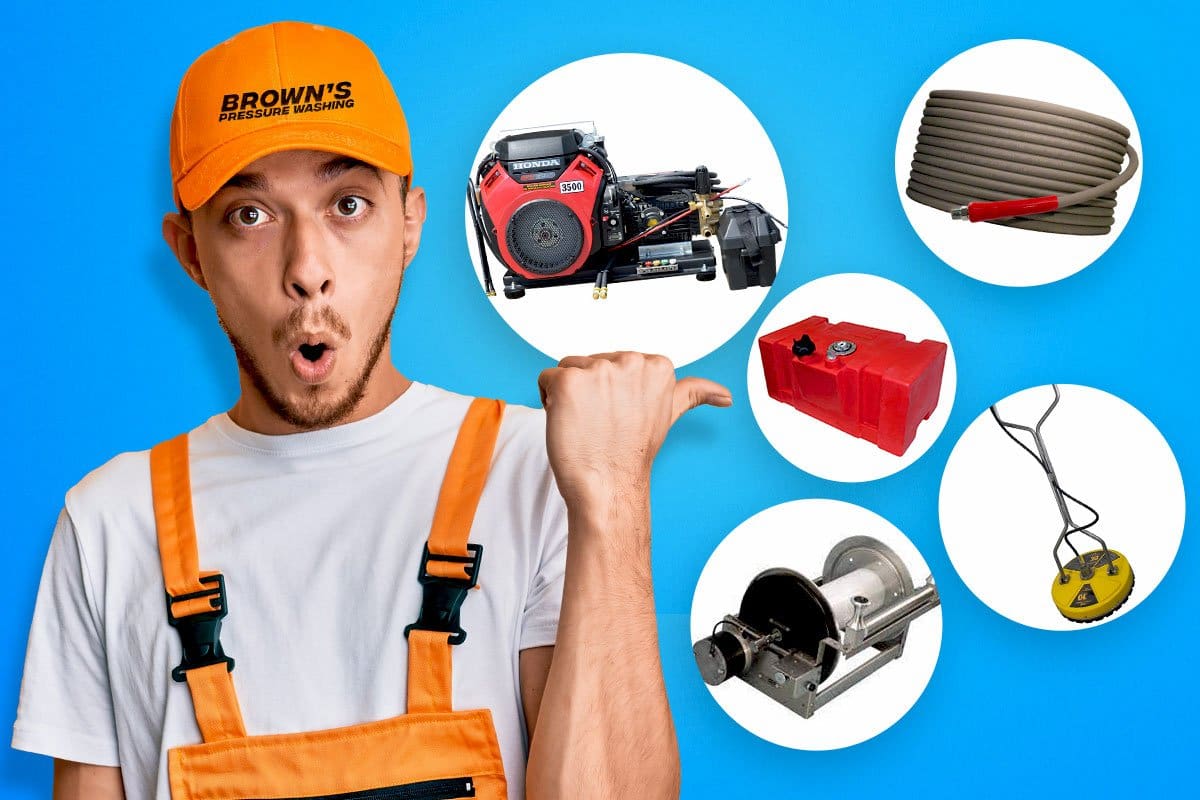
Brown’s Pressure Washing uses a pressure washing truck setup that includes:
- 8’ Skid
- 8 GPM @ 3500 PSI Honda Gx690 pressure washer
- 18-gallon fuel tank
- 200-gallon water tank
- 100-gallon chemical tank
- 7-gallon soap tank
- Interstate deep cycle marine battery
- 3-18” electric hose reels
- 7 GPM 12v chemical pump with metering system
- 250’ water house
- 200’ pressure hose
- 200’ chemical hose
- 20” surface cleaner
- Remotes to operate equipment
- Toolbox
Josiah Le Beau, the Operations Manager at Brown’s Pressure Washing, told us:
Check out their custom pressure washer setup for trucks in the interview below.
Next, we discuss the elements you’ll want to include in your pressure washing rigs.
Skid frame
The skid frame is a sturdy and durable platform made of metal, such as steel or aluminum. It is where you mount the pressure washer components and accessories.
The skid frame design can easily be put in a truck bed or trailer for easy transportation and stability. If you have a big multi-day job you can even take it out and leave it on the job site. You can buy skids online but the closest option to Brown’s current pressure washer setup with add-ons is the Alumimax Pro Pressure Wash Skid.
Pressure washers
Brown’s Pressure Washing recommends the 8 GPM, 3500 PSI Honda Gx690 Pressure Washer. This gas machine is the heart of their custom rig.
You might choose an electric-powered unit instead of a gas-powered washer depending on your preferences and needs. You’ll connect the pressure washer securely to the skid frame, often with vibration-dampening mounts to reduce noise and enhance its operational stability.
Learn about some of the best pressure washers for each type of cleaning job.
Hoses and reels
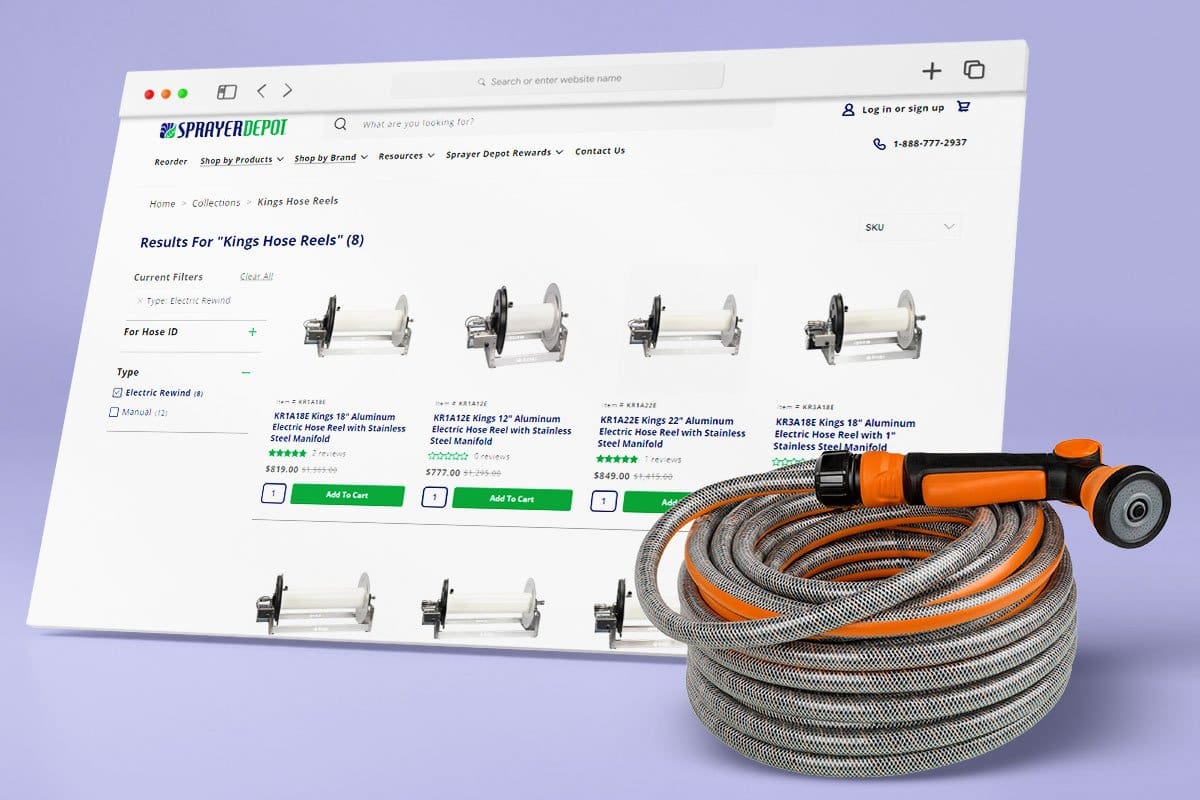
You’ll need hoses for the pressure washer to be truck or trailer-mounted. Brown’s uses three color-coded hoses on electric reels. The hoses are:
- 250’ Water hose ($299)
- 200’ Pressure hose ($259)
- 200’ Chemical hose($259)
You’ll want each hose to be rated to handle a minimum of 3500 PSI (or whatever your pressure washer is rated) so that you can utilize the power washers full force on bigger jobs. Brown’s color codes their hoses and uses Kings hose reels.
You’ll notice that they have both hand crank and electrical options in the picture above.
Power source
Your power source will consist of an electrical battery or a fuel tank. If you use any electrical components with a trailer-mounted gas washer, you may need both.
Fuel tank (gas-powered only)
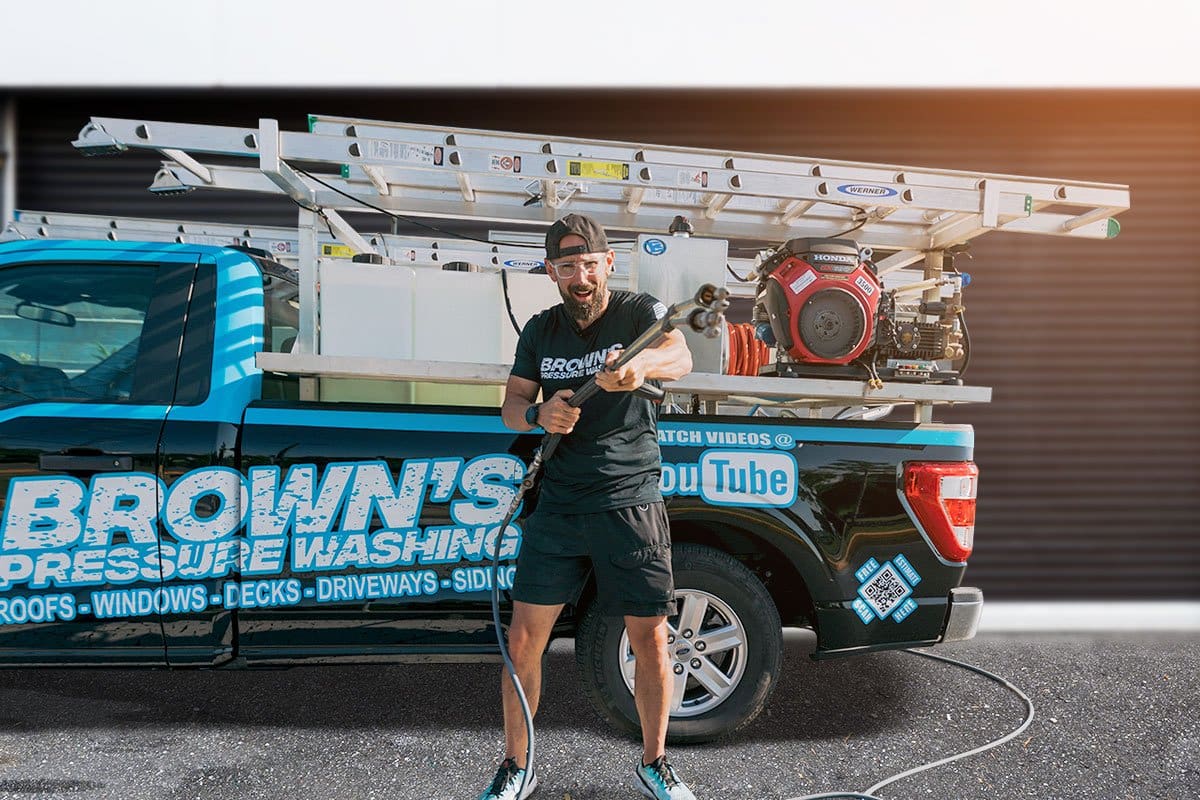
Your mobile power washer trailer will need fuel for the engine. Brown’s uses an 18-gallon fuel tank like the one in the picture below. We have provided one that appears to have similar features in our Amazon shop.
Battery (solar optional)
You’ll need a battery to power electric pressure washers and any other electrical equipment. Brown’s uses an Interstate deep cycle marine battery.
You’ll probably want a way to charge it, too. There are a variety of ways to charge batteries including solar, alternators, or heat reclamation turbines.
Water tank
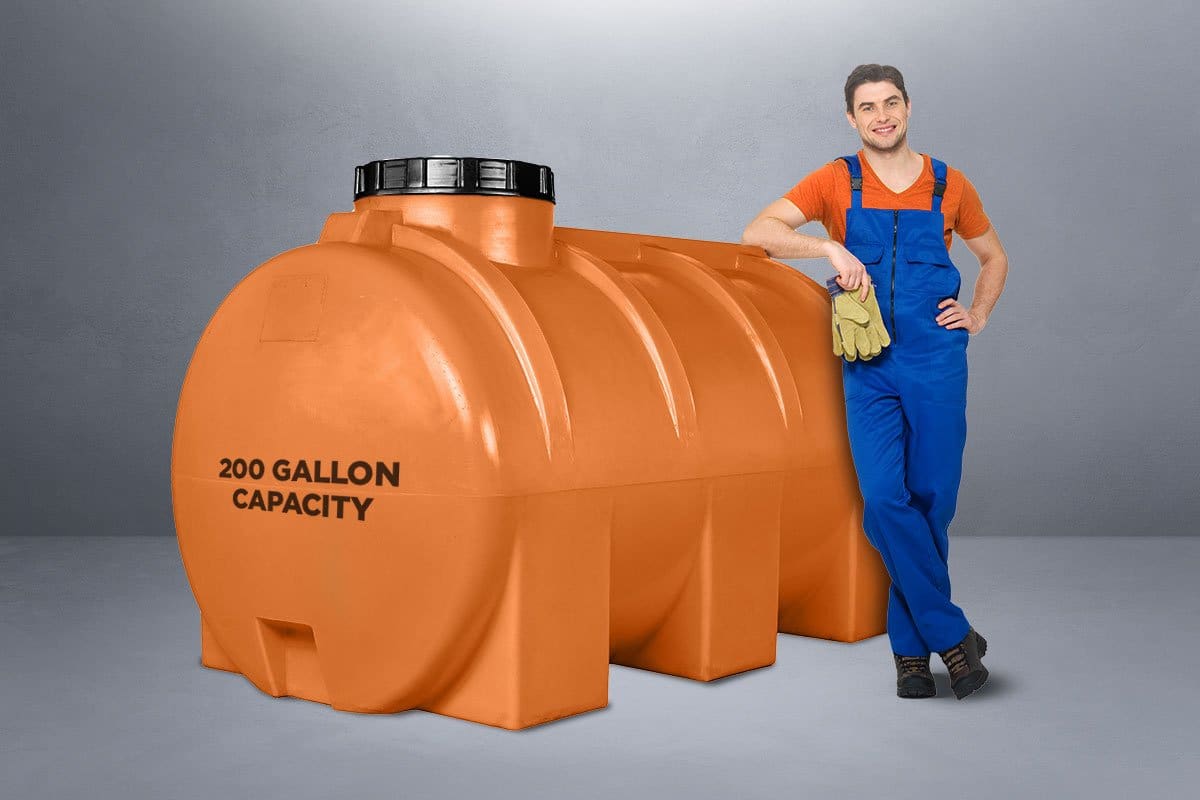
Custom pressure washer rigs often incorporate a self-contained water tank instead of connecting a hose to the water supply at the job site. The tank is securely fastened to the skid frame and may include features like baffles for stability during transport.
The team at Brown’s suggested getting a 200-gallon-capacity tank to meet the needs of most applications, including residential, business, and small industrial jobs.
Chemical tank
You will also want a separate tank for the chemicals in your pressure washer setup. Brown’s suggests a 100-gallon chemical tank because companies will use two parts water to one part chemicals.
Reclaim tank
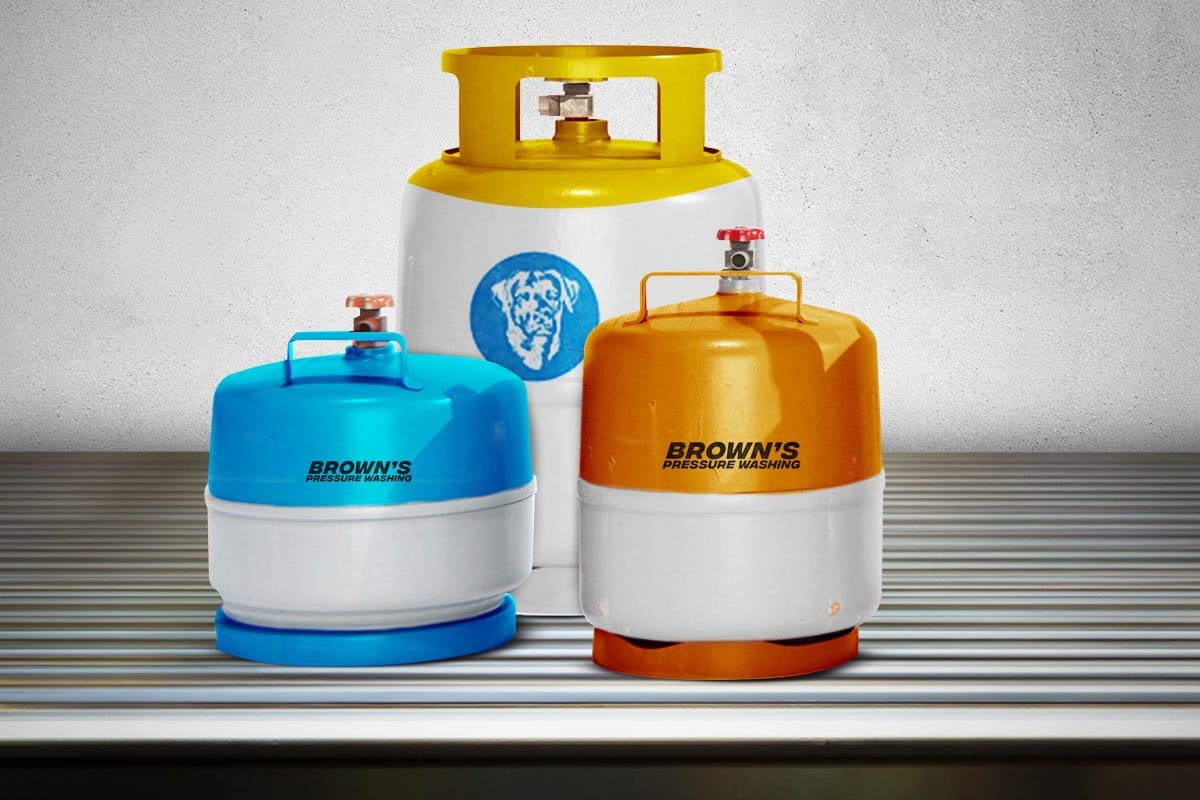
The pressure washing industry uses a lot of water. Brown’s 8 GPM setup uses as much water in 45 minutes as the average U.S. household uses in a whole day.
Reclaiming water may be required in your area, but even if it isn’t, it may reduce your long-term costs because you can filter it and reuse it.
Accessories and customization
Custom rigs on skids can be customized to include various accessories based on specific requirements. These may include surface cleaners, extension wands, nozzles, spray guns, and chemical injection systems. The accessories can be mounted on the skid frame or stored in dedicated compartments for easy access and organization.
Controls and safety features
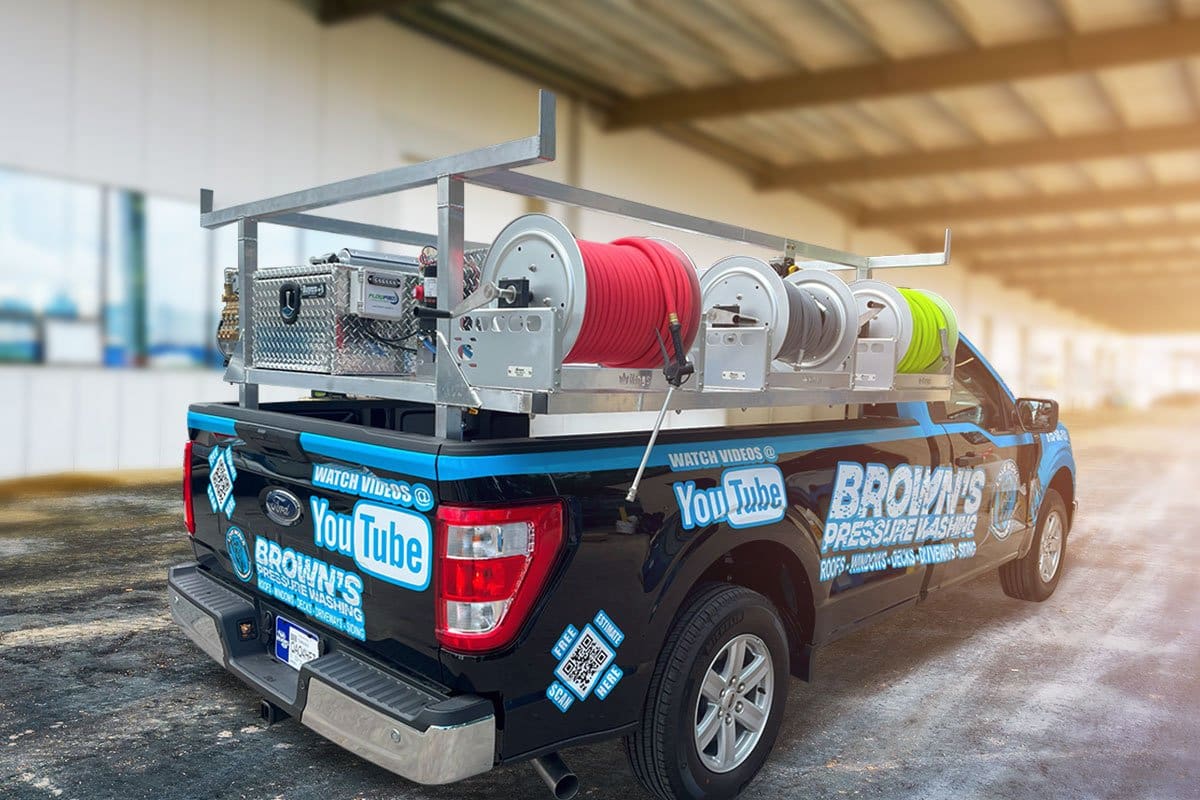
Custom rigs on skids typically include controls and safety features for convenient and safe operation. This may include pressure control valves, thermal protection, safety switches, and pressure gauges. These components ensure optimal performance, protection against overheating, and safe use of the pressure washer system.
Custom pressure washer rigs built on skids offer flexibility, portability, and efficient organization of equipment. They are commonly used in various industries such as construction, property maintenance, agriculture, and fleet cleaning, where a self-contained and transportable pressure washing system is beneficial. The customization options allow for tailoring the rig to specific needs, ensuring optimal performance and productivity on the job.
Get your own pressure washer trailer
You have two options to get your first pressure washing trailer:
- Buy a fully assembled pressure washer trailer.
- Buy the components and build a pressure washer trailer.
Josiah told us:
Buy a mobile pressure washing trailer
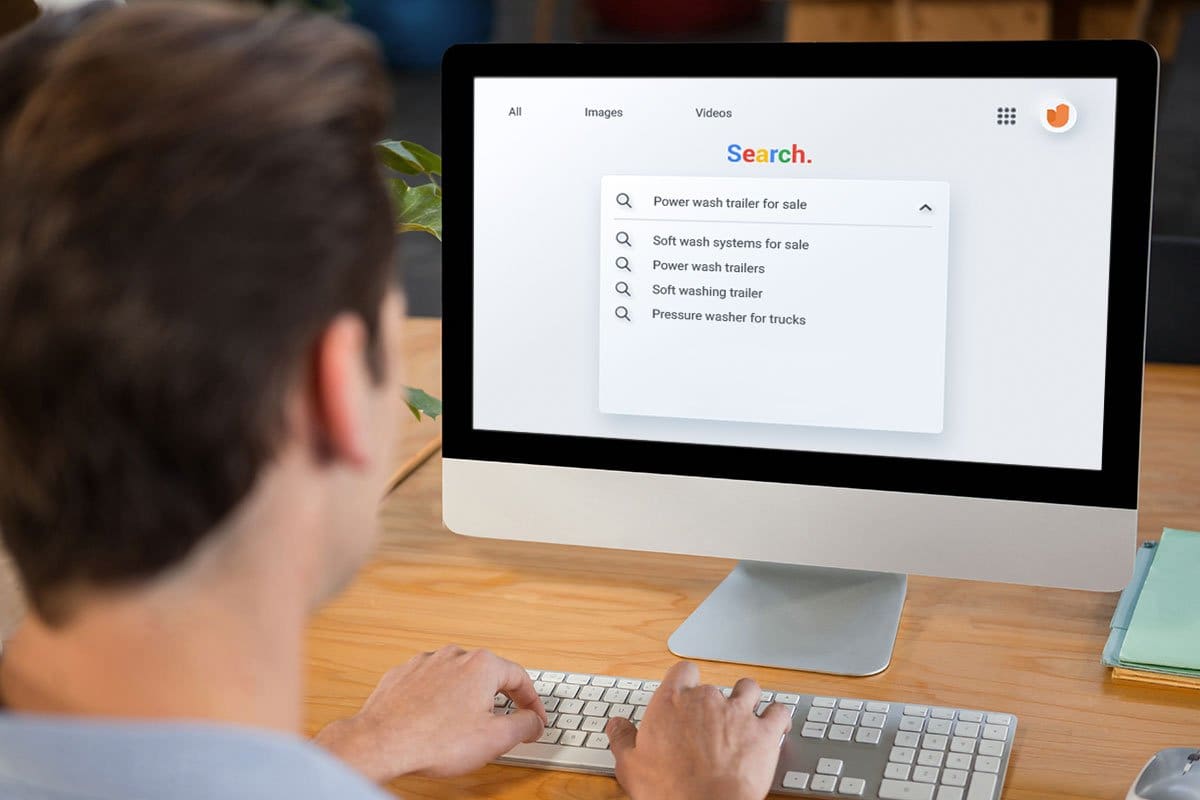
When you first start a pressure washing business, you’ll probably want to buy a commercial pressure washing setup so you can start cleaning quicker.
You can find trailers and truck systems by searching terms like:
- Power wash trailer for sale
- Soft wash systems for sale
- Power wash trailers
- Soft washing trailer
- Pressure washer for trucks
Places to buy pressure washer setups
Southeast Trailer: This company offers options for a pressure washer setup. Businesses have options ranging from $1,399 to nearly $50K.
Northern Tool: Consider pressure washing setups ranging from $300 to $20K+. You can choose from softwash systems for sale, power wash trailer setups (hot water), commercial pressure washing trailer (cold) setups, and more.
Build a homemade pressure washer trailer setup
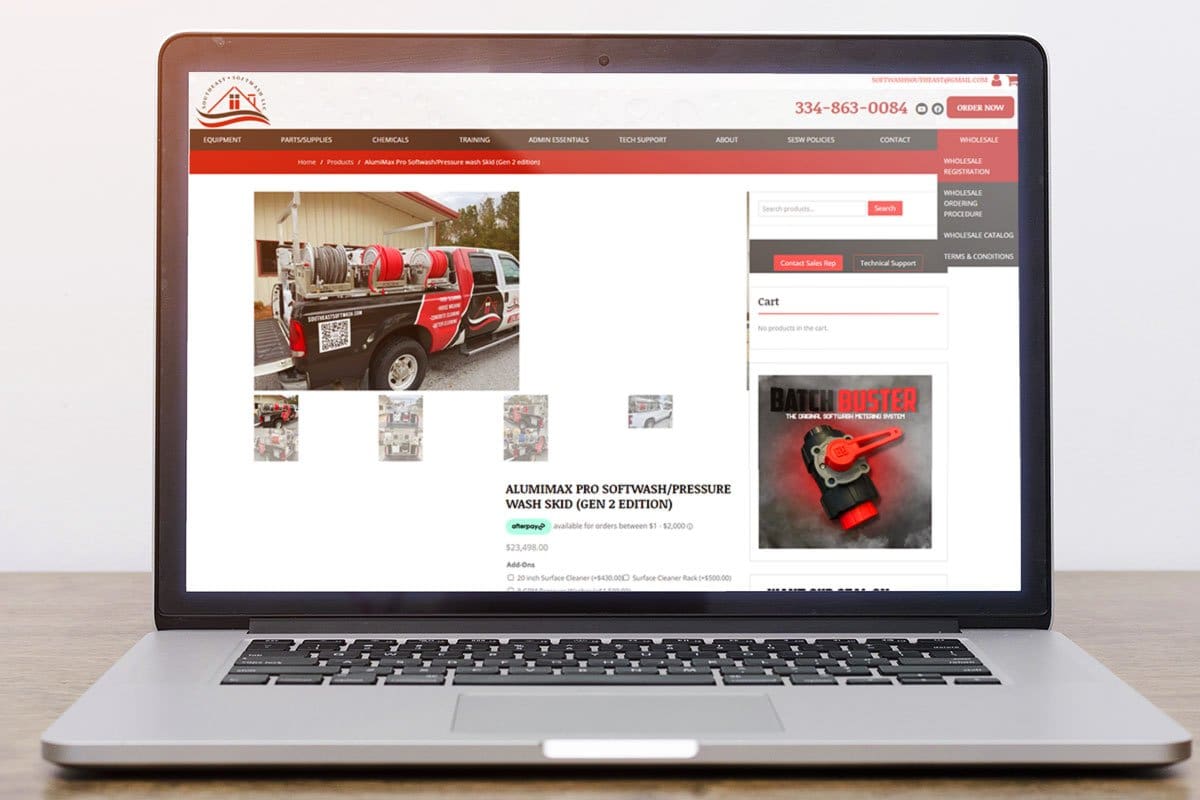
Once you develop expertise in your mobile cleaning business, it may be worth it to spend extra money on a custom wash trailer. You’ll save money by buying each piece of equipment separately, but you’ll have to perform the installation work or pay someone else to do it.
This route will require:
- Gather all your equipment.
- Build a complete skid.
- Secure equipment to the skid.
- Secure the skid to the power wash truck or softwash trailer.
What you’re saving in costs, you’ll be spending in sweat equity. Based on this setup, which is comparable to Josiah’s, it appears you can buy a similar model truck power wash unit for about $7K more than it would cost to build it yourself.
While it may be cheaper, you should decide whether the $7K is worth the time it will take to build out your rig or whether it’s better to buy a truck or trailer on the open market
What trailer setup will you get?
There are tons of options to expand your pressure washing business and improve efficiency. Making all these decision can be hard. Simplify your decision making with our Pressure Washing Class.
Will you choose a homemade trailer setup or a pre-built one? What quality and features are most important to your business?

